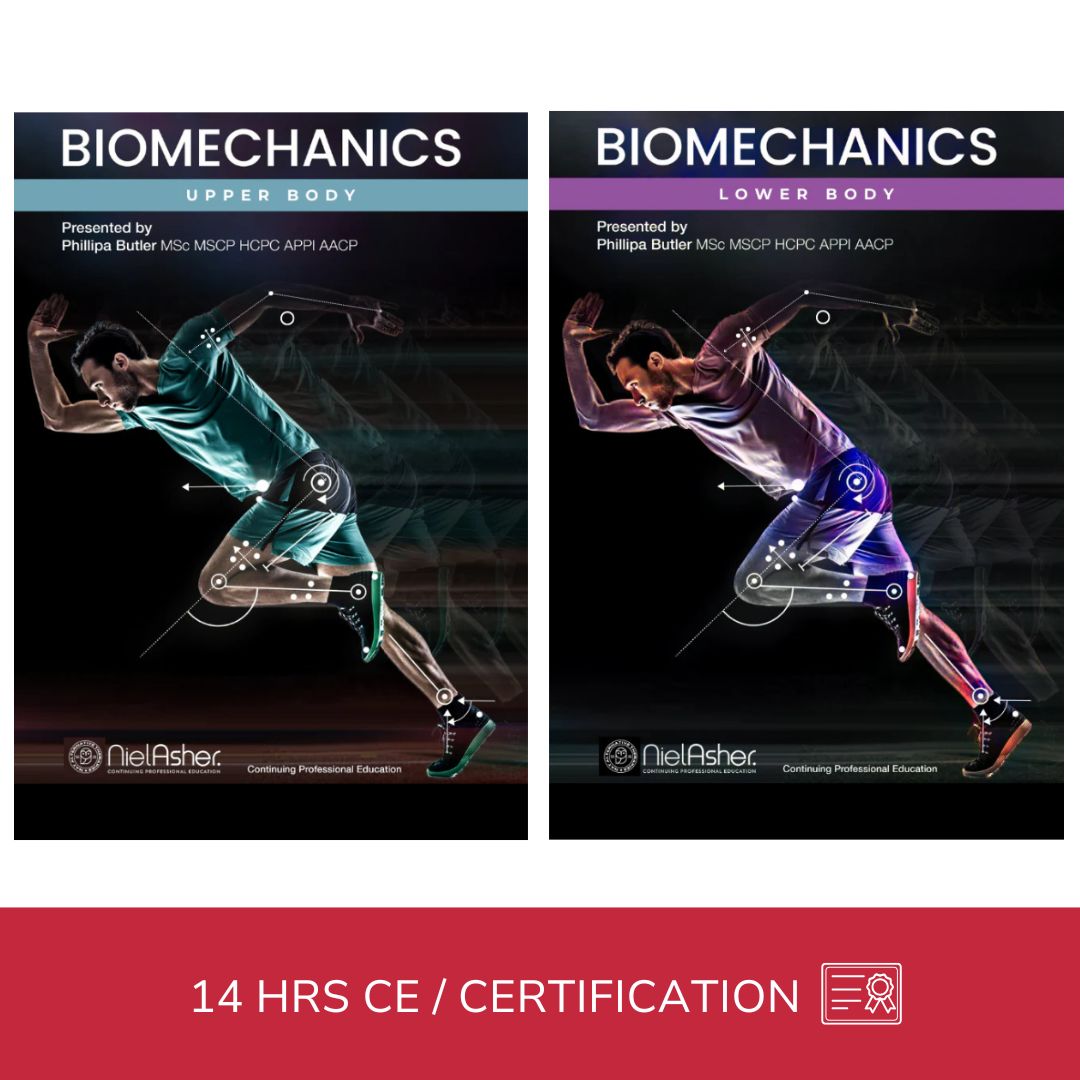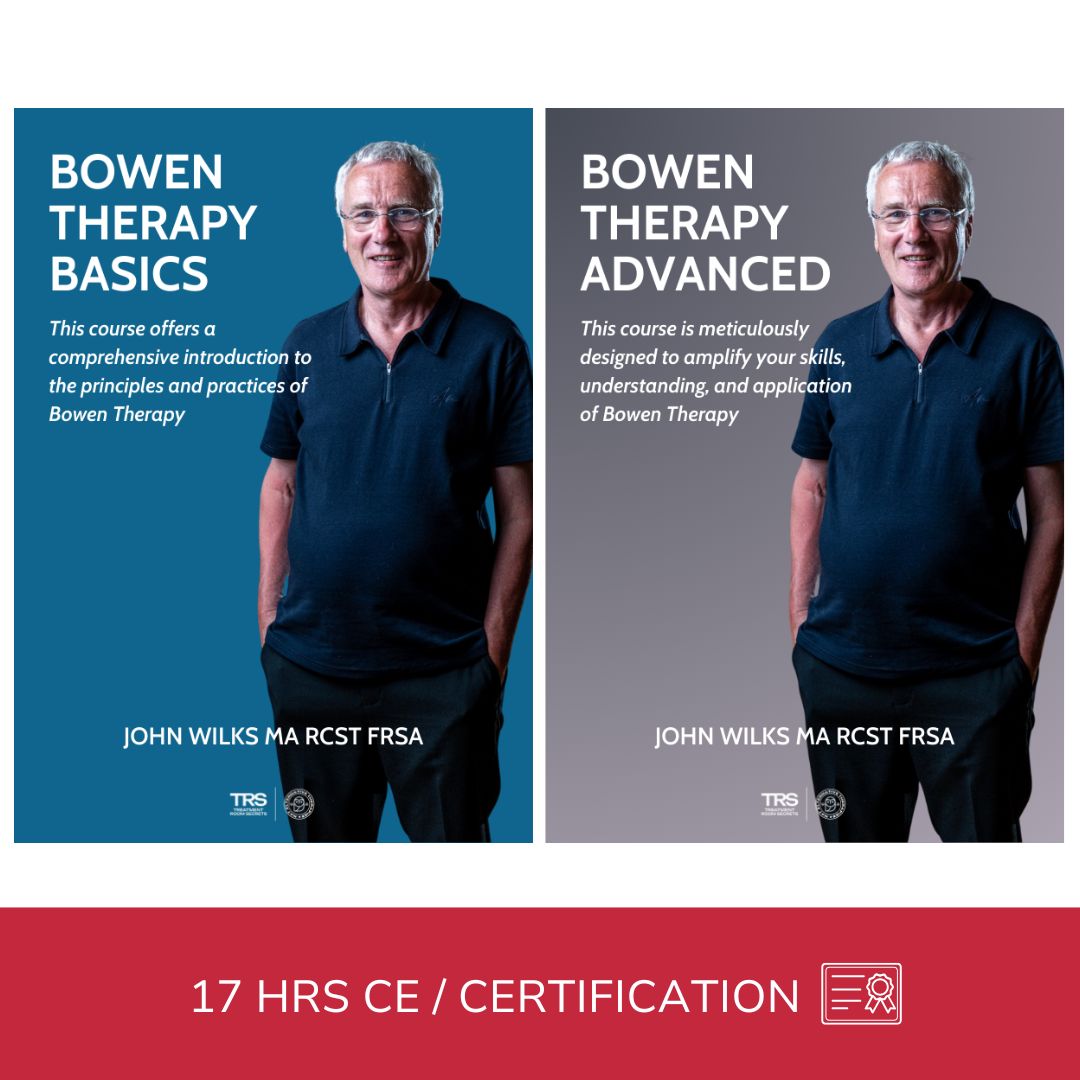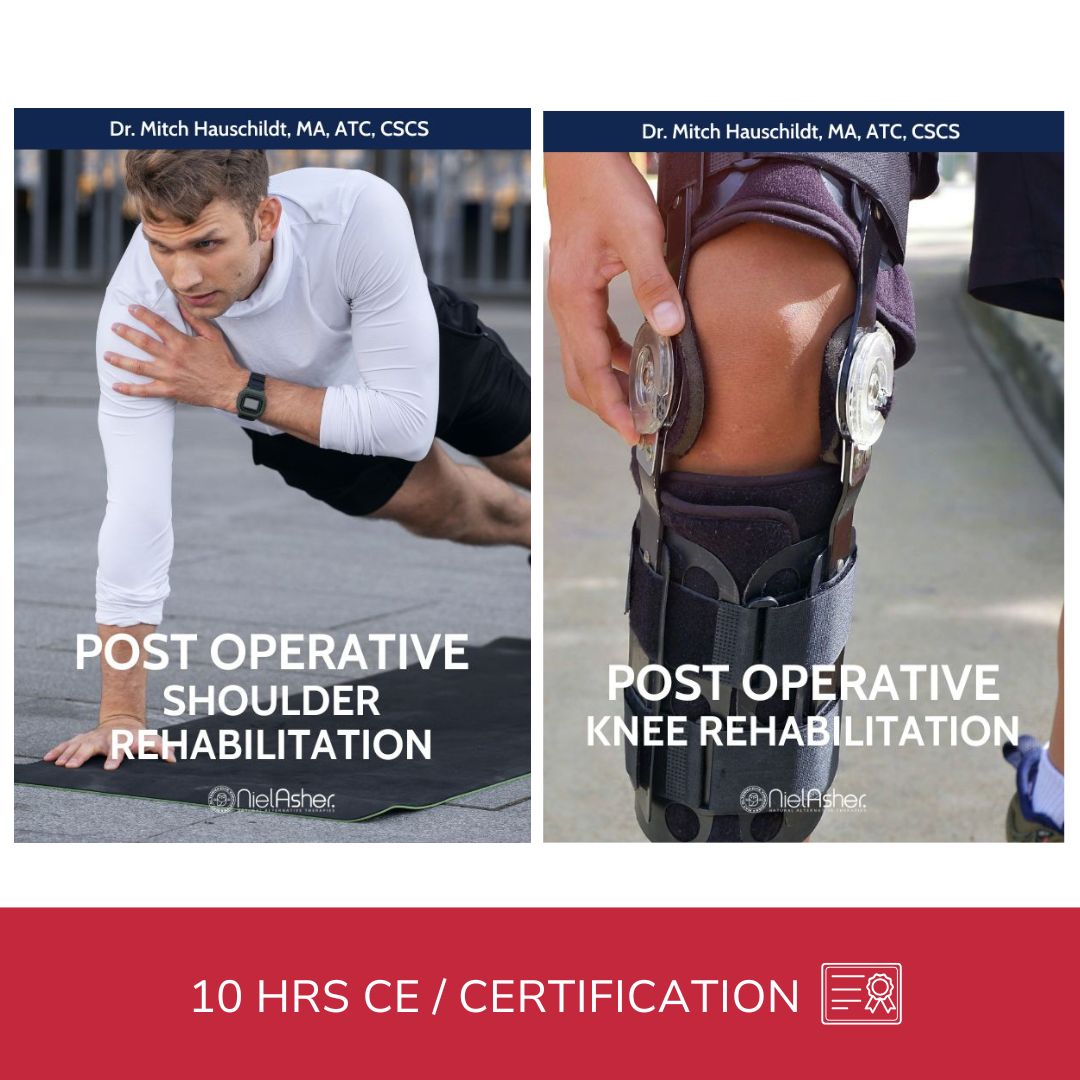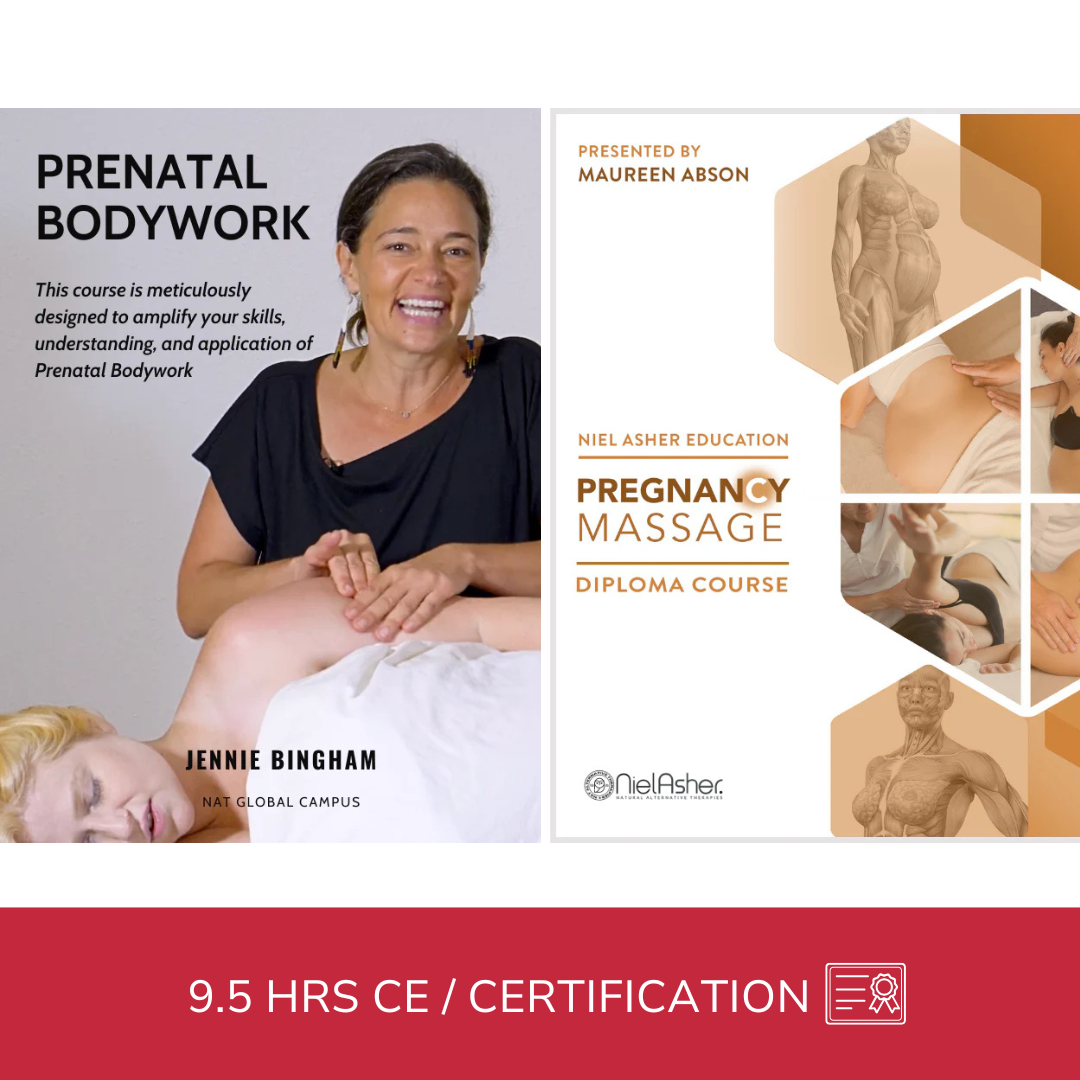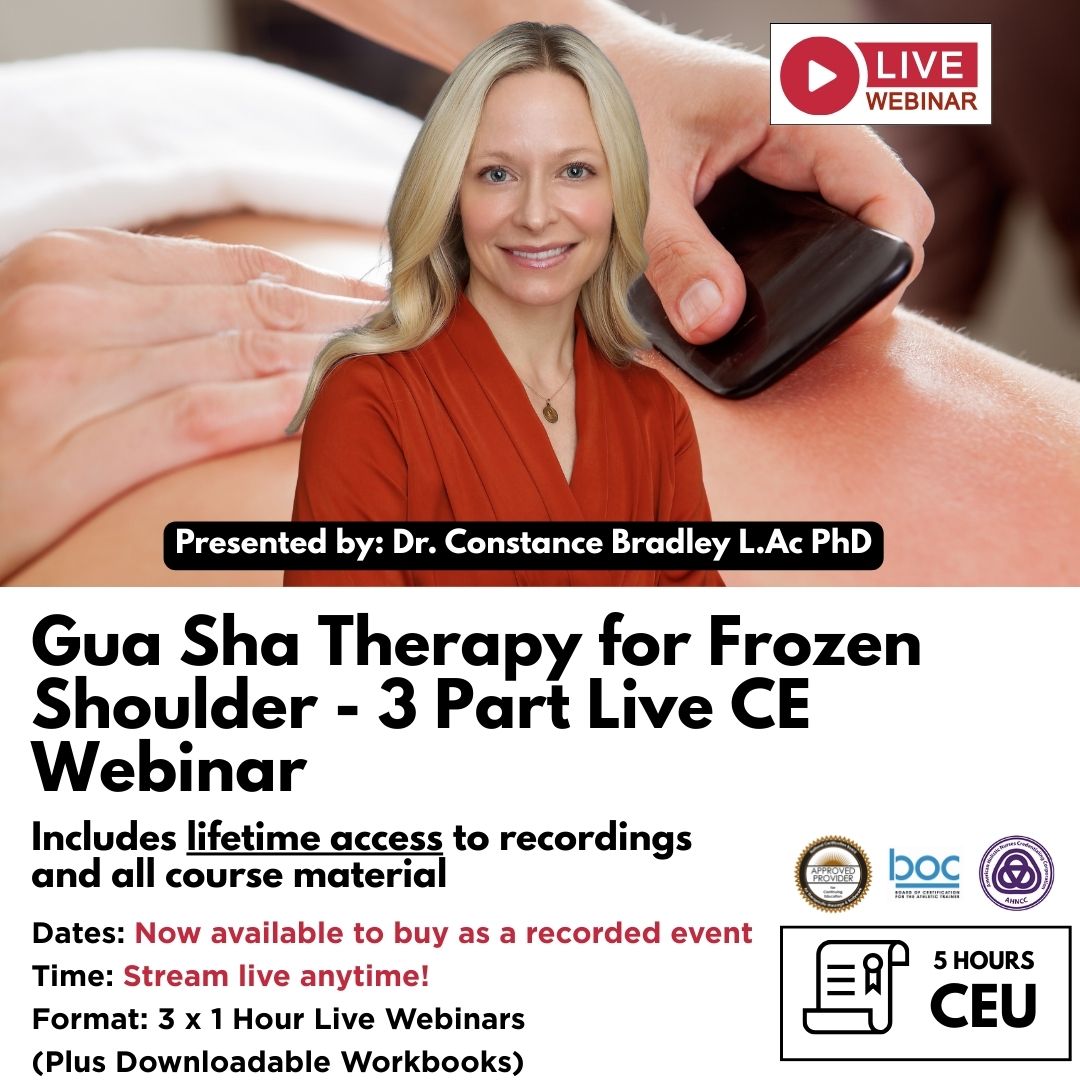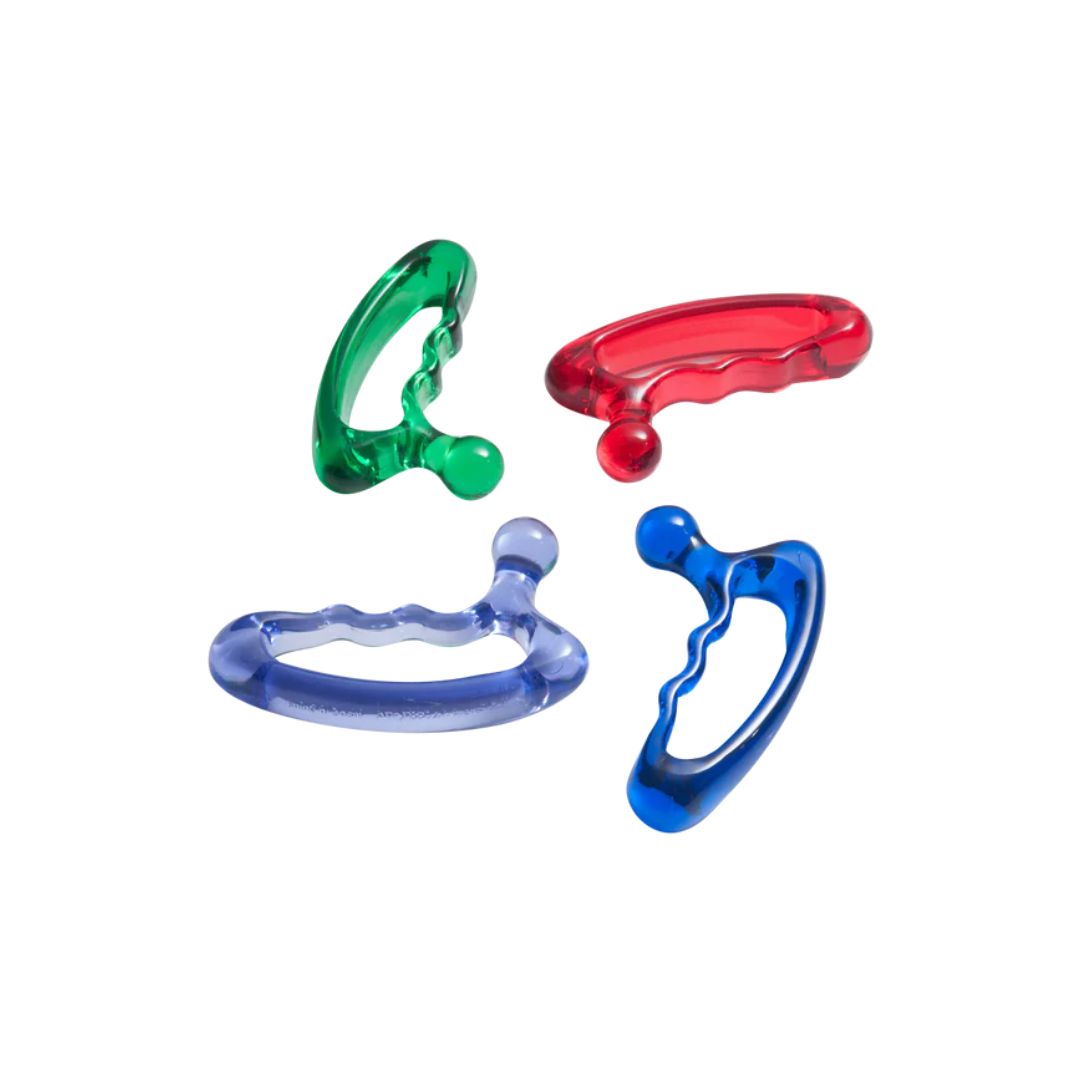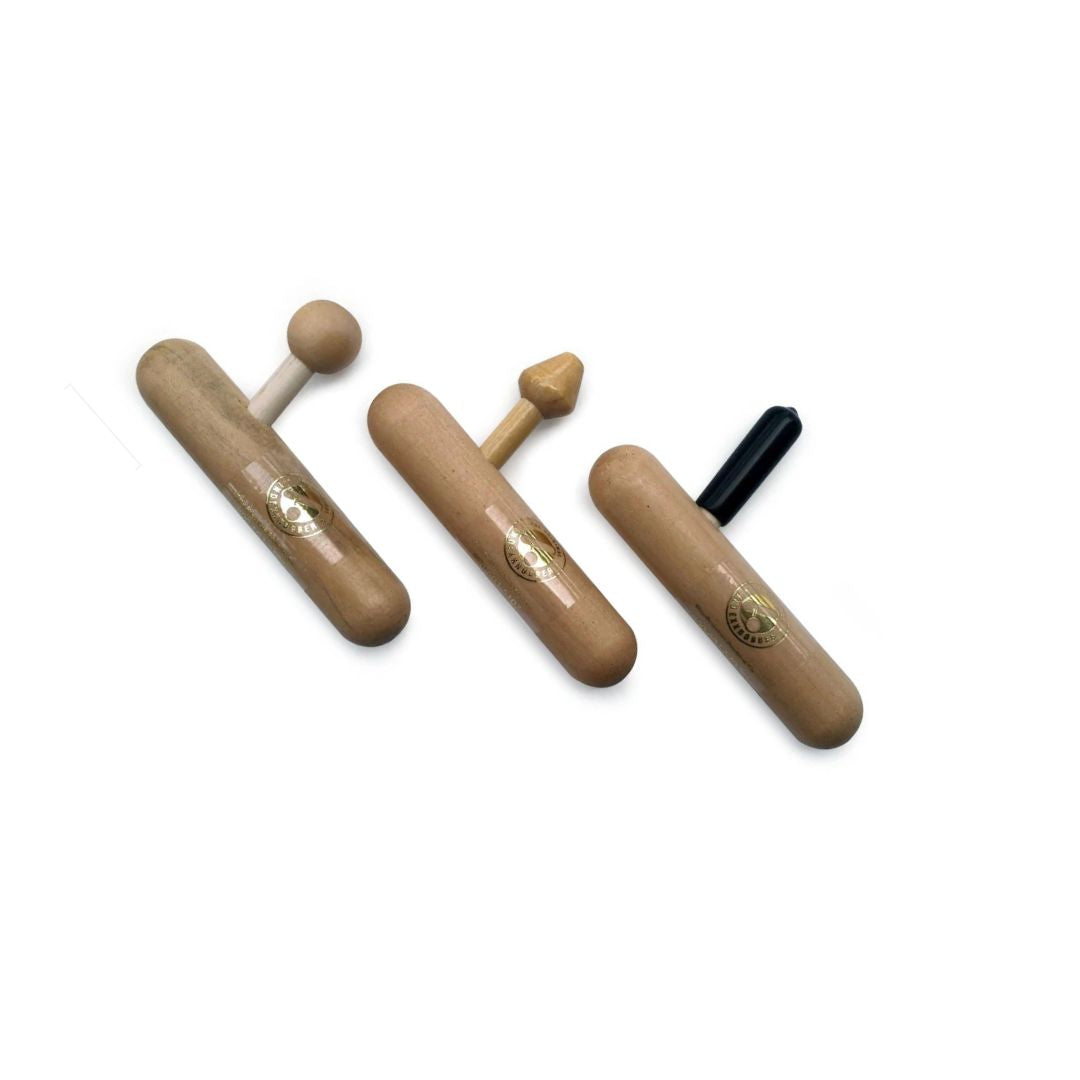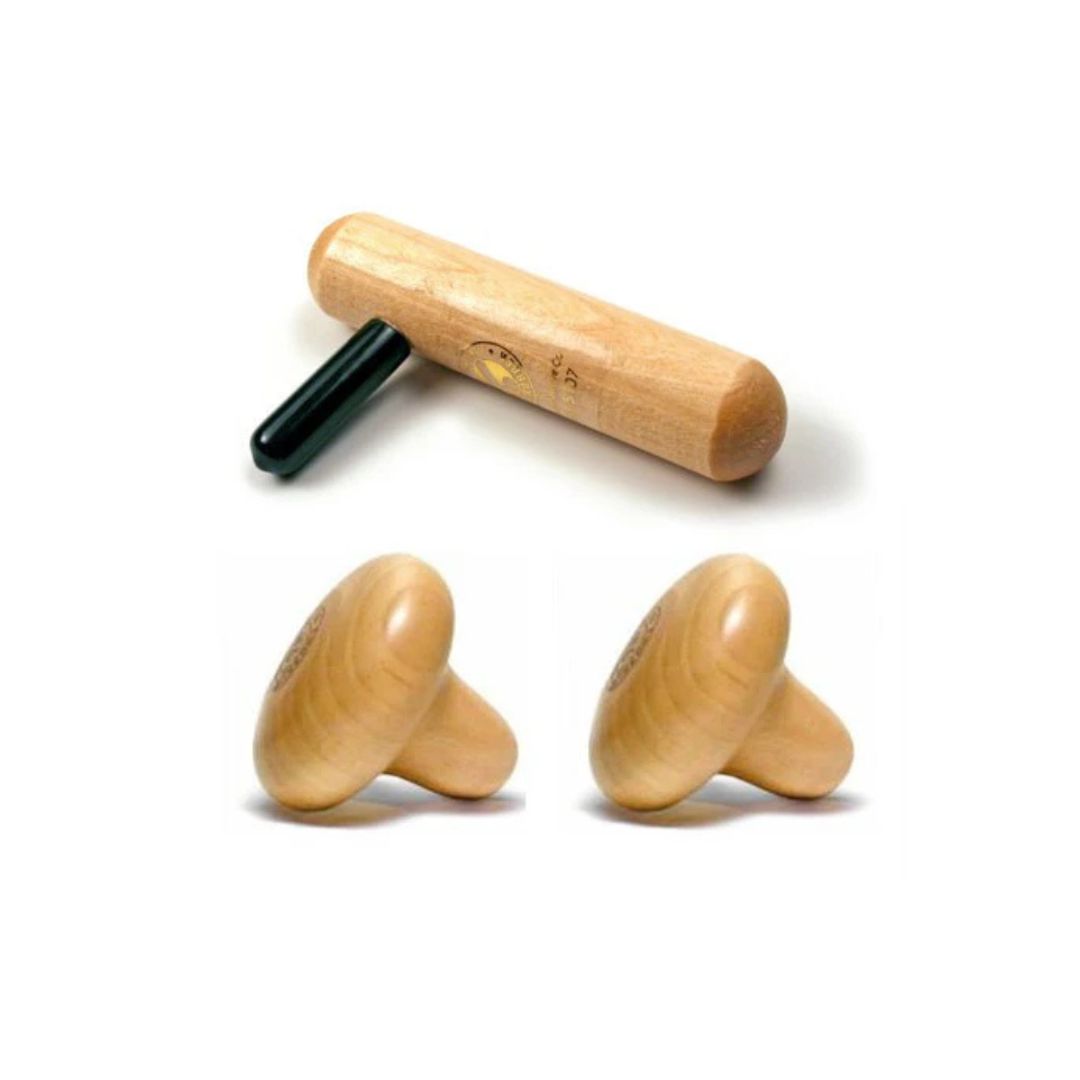Common Sports Injuries - Dislocation of the Shoulder
In most cases, significant force is required to dislocate a shoulder
Dislocation of the shoulder at the GH joint may occur when an athlete falls on an outstretched hand or during abduction and external rotation of the shoulder.
Significant force is required to dislocate a shoulder unless the athlete is experiencing re-injury.
A shoulder dislocation occurs when the head of the humerus pulls free of the glenoid fossa of the scapula.
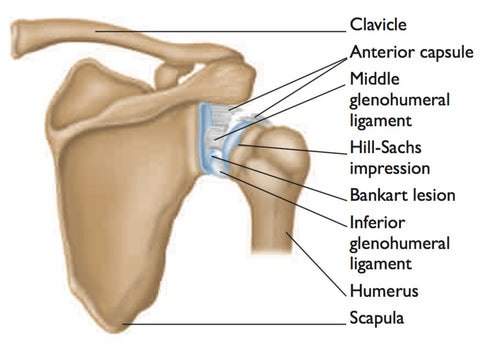
Several Types of Dislocation
While several types of shoulder dislocation exist, the most common is anterior dislocation which represents 95% of all cases.
In this dislocation injury, the structures responsible for stabilizing the anterior shoulder, including the capsule and the inferior glenohumeral ligament, are torn free from the bone.
Compression fractures of the posteromedial humeral head known as Hill-Sachs lesions are associated with anterior dislocations.
More commonly, avulsion of the anterior glenoid labrum can occur, which is known as a Bankart lesion.
Cause of injury
Violent contact with another athlete or solid object. A fall onto an outstretched hand. Sudden, violent torsion of the shoulder.
Signs and Symptoms
Severe pain in the shoulder. Arm held away from the body at the side, with the forearm turned outward. Irregular contour of the deltoid muscles.
Complications if Left Unattended
Dislocation of the GH joint causes damage to the joint ligaments, resulting in the joint becoming less stable and considerably more prone to successive dislocations during athletics.
Immobilization of the shoulder during the healing phase does not fully prevent such re-injury, which may require surgical intervention, since the immobilized ligaments often fail to heal in the proper position.
Damage to the axillary artery and nerve can also occur, causing weakness in the deltoid muscle.
Immediate Treatment
Realignment or reduction of the dislocated joint. Immobilization and analgesics for pain.
Rehabilitation and Prevention
Most initial shoulder dislocations are treated without resort to surgery, although subsequent dislocations may require surgical care. Many athletes suffer a range of disabilities following dislocation.
An alternative to surgical treatment – prolotherapy – involves injections directed at the anterior shoulder capsule and the insertions of the middle and inferior glenohumeral ligaments.
This may offer better relief from pain, restoration of mobility and a speedier return to athletic activity. Further, the technique avoids the formation of scar tissue common after surgery.
Long-Term Prognosis
A large percentage of athletes may be unable to continue sports following a shoulder dislocation without subsequent injuries or the need for surgical treatment.
Furthermore, athletes who undergo surgery following shoulder dislocation are often unable to perform at their former level.
The alternative method of prolotherapy may offer relief and more effective healing.
Find a Trigger Point Professional in your area
Certify as a Trigger Point Therapist
Recommended Trigger Point Therapy Courses:
This trigger point therapy blog is intended to be used for information purposes only and is not intended to be used for medical diagnosis or treatment or to substitute for a medical diagnosis and/or treatment rendered or prescribed by a physician or competent healthcare professional. This information is designed as educational material, but should not be taken as a recommendation for treatment of any particular person or patient. Always consult your physician if you think you need treatment or if you feel unwell.
About Niel Asher Education
Niel Asher Education (NAT Global Campus) is a globally recognised provider of high-quality professional learning for hands-on health and movement practitioners. Through an extensive catalogue of expert-led online courses, NAT delivers continuing education for massage therapists, supporting both newly qualified and highly experienced professionals with practical, clinically relevant training designed for real-world practice.
Beyond massage therapy, Niel Asher Education offers comprehensive continuing education for physical therapists, continuing education for athletic trainers, continuing education for chiropractors, and continuing education for rehabilitation professionals working across a wide range of clinical, sports, and wellness environments. Courses span manual therapy, movement, rehabilitation, pain management, integrative therapies, and practitioner self-care, with content presented by respected educators and clinicians from around the world.
Known for its high production values and practitioner-focused approach, Niel Asher Education emphasises clarity, practical application, and professional integrity. Its online learning model allows practitioners to study at their own pace while earning recognised certificates and maintaining ongoing professional development requirements, making continuing education accessible regardless of location or schedule.
Through partnerships with leading educational platforms and organisations worldwide, Niel Asher Education continues to expand access to trusted, high-quality continuing education for massage therapists, continuing education for physical therapists, continuing education for athletic trainers, continuing education for chiropractors, and continuing education for rehabilitation professionals, supporting lifelong learning and professional excellence across the global therapy community.
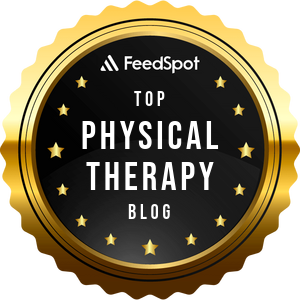
Continuing Professional Education
Looking for Massage Therapy CEUs, PT and ATC continuing education, chiropractic CE, or advanced manual therapy training? Explore our evidence-based online courses designed for hands-on professionals.


